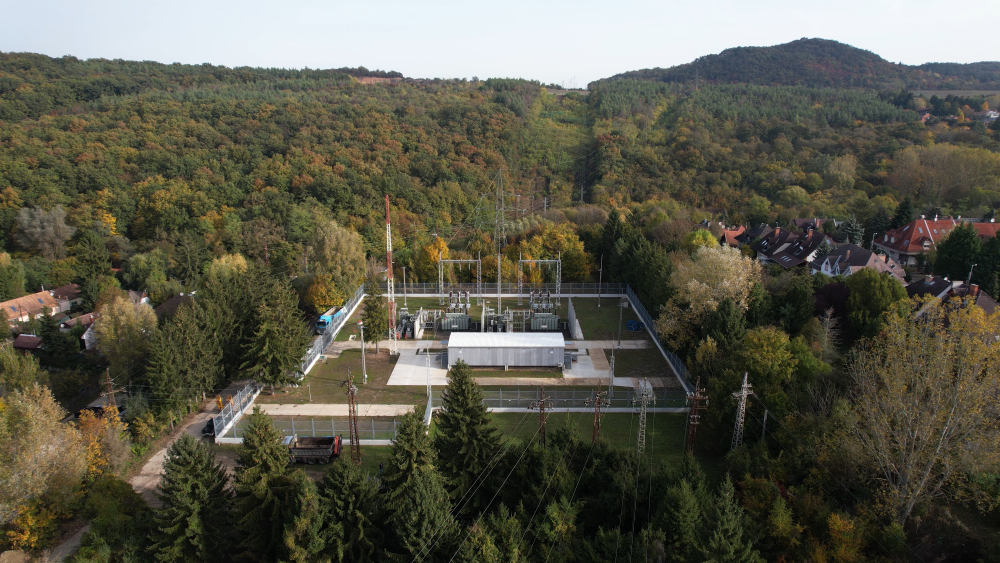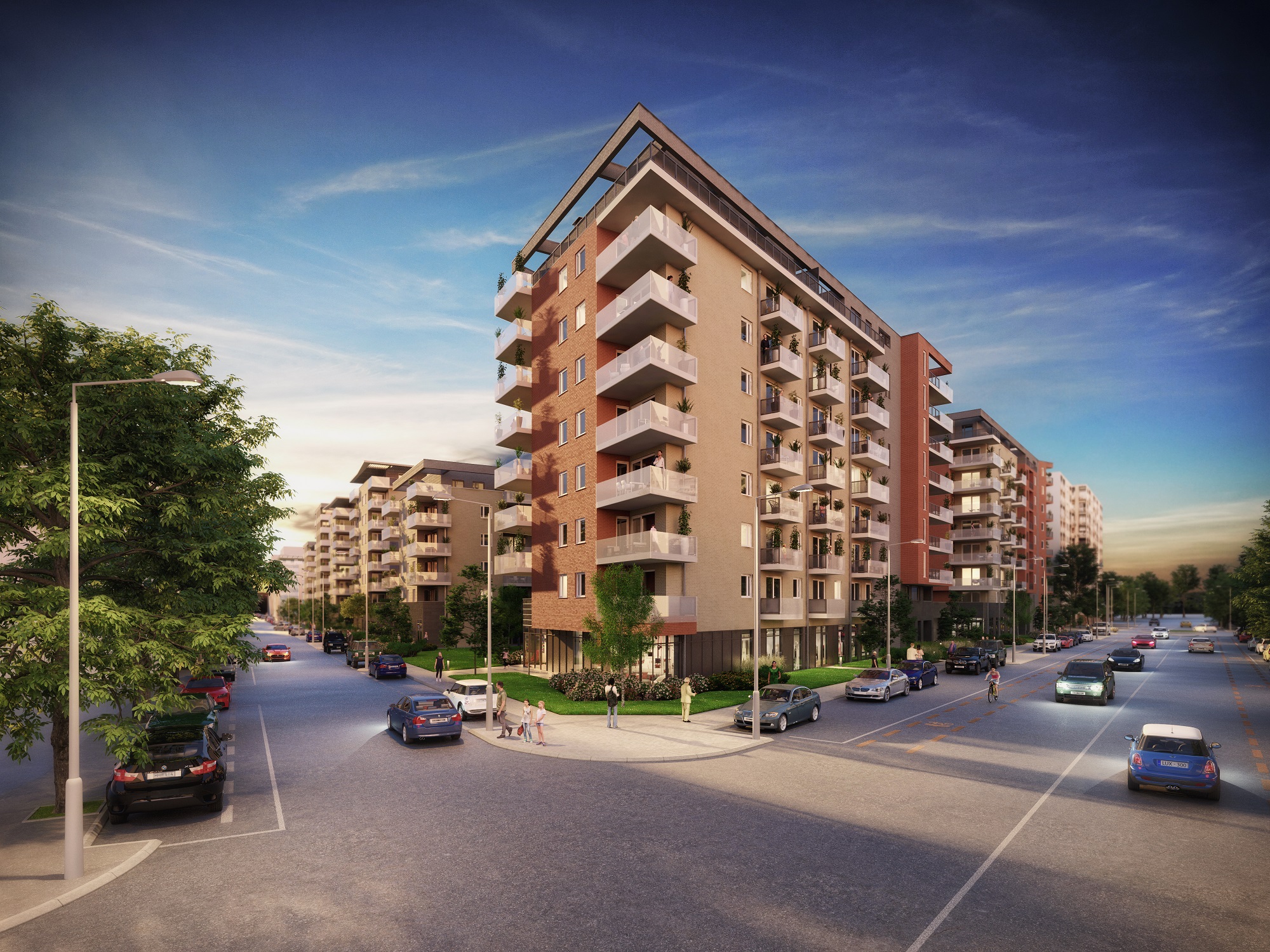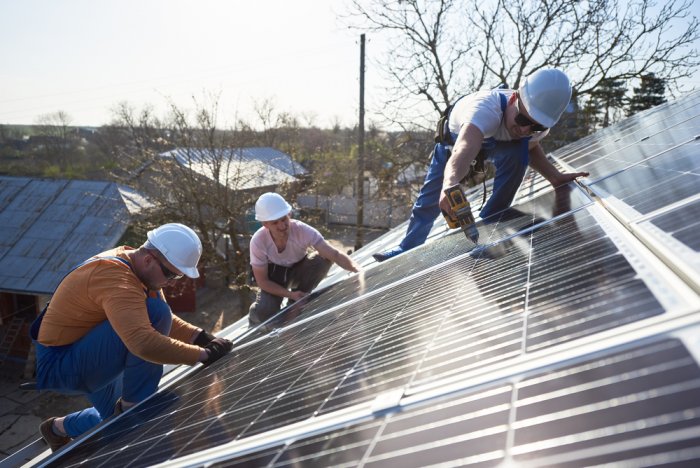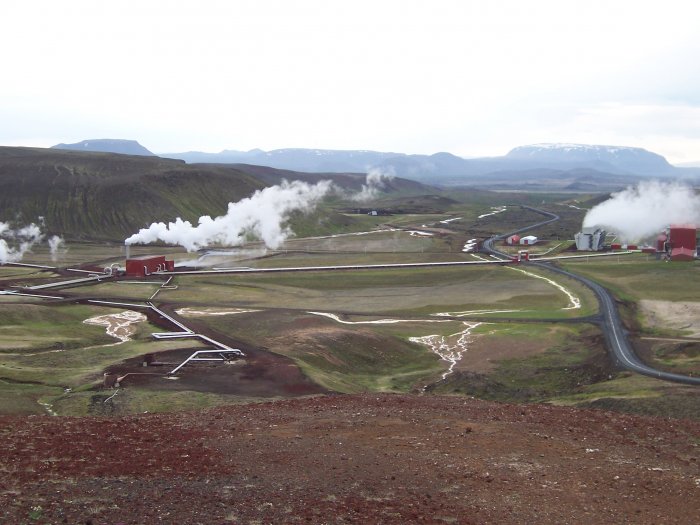E.ON Network Upgrade: Blending Energy Needs with Nature Conservation

The Solymár substation of the E.ON Hungária Group, which is responsible for the electricity supply of the settlements of Máriaremete, Remeteszőlős, Solymár, Pesthidegkút, Pilisszentiván, Pilisvörösvár, Piliscsaba, and Nagykovácsi, has been completely renewed, with the company keeping the protection of nature in mind during the project.
The Buda Landscape Conservation Area borders Budapest from the west, with its mountain ranges, many of which are deeply embedded in the city and covered with native forests. The Natura 2000 protected area is a unique repository of botanical, geological, and landscape values, also known as the "lungs" of the capital. The area is crisscrossed by the backbone networks of E.ON and its predecessor companies built in the 1970s and 1980s, which were established 50 years ago in an uninhabited area but have since been encircled by the agglomeration.
The growing population of the neighboring settlements and the ever-increasing energy demand, combined with the need to protect the natural environment, have prompted one of the most significant network developments in the Buda area to be undertaken by the E.ON Hungária Group.
Initially supplying 7,500 consumers, the substation in Solymár now supplies power to 40,000 points of consumption. The need to upgrade the substation, which serves the region's most energy-intensive municipalities, was driven by the ever-increasing demand for energy, and E.ON decided not to go for a traditional, time-consuming upgrade. It installed a mobile substation in Solymár, built in an almost prefabricated shipping container, to serve its customers' needs more efficiently.
In parallel with the renewal of the substation, E.ON has started the dismantling of part of the 20 kV medium-voltage network in the surrounding settlements and protected forests and its replacement with underground cables, the whole process will be carried out in several stages in the next few eaars, while ensuring the continuity of electricity supply to customers. In addition to the need for a more reliable network, the decommissioning of the overhead network was justified by a number of weather and natural factors, such as the 2014 ice storm in the Buda forests, when a thick layer of ice on the overhead lines caused concrete poles to break under the weight of the ice, tearing down entire sections of the lines and causing a prolonged power cut for the people living there, according to a press release sent to the Budapest Business Journal.
In the context of the development, E.ON is removing and replacing more than 450 poles and 50 kilometers of overhead lines with underground cables in the Natura 2000 areas of the Buda Landscape Protection Area and in residential areas of the region. The installation of the underground cable network, which will provide a safer and more secure operation, will significantly reduce the exposure of the area's electricity supply to the forces of nature. The upgraded sections will no longer be affected by storm damage or power cuts caused by falling trees, which could previously cause service outages lasting several hours.
"At E.ON Hungária Group, we are building the electricity grid of the future, in harmony with nature. Our investment in the fast-growing Buda agglomeration will significantly increase the security of electricity supply in the region, our network will be less exposed to the increasingly extreme weather conditions and the expansion needs of the people living in the area will be met more quickly. But just as importantly, we are making an upgrade that will make the grid almost invisible, removing poles and wires and allowing underground cables to restore the original beauty of nature," said Ádám Katona, deputy CEO for networks at E.ON Hungária Group.
The laying of underground cables is also a major step forward from a nature conservation point of view. By dismantling the medium-voltage grid, the forest can heal the artificially straight lines of the openings in the treated areas by self-reforestation or by planting native tree species by the Pilisi Parkerdő experts who look after the area.
"As the largest green infrastructure manager in the capital and its region, Pilisi Parkerdő welcomes the development efforts of the E.ON Hungária Group. The elimination of overhead power lines not only offers the opportunity to heal an optical landscape wound but can also increase the proportion of areas covered by trees, which is an important tool in the fight against climate change and can also address the local population's 'green' demands. As a next step, it will be important to manage these areas professionally to eliminate the hotspots of alien and invasive plants that have appeared during the decades of power lines, thus helping the establishment of native vegetation," said István Rittling, forestry manager of the Buda Forestry of Pilis Parkerdő.
The complete renewal of the substation in Solymár and the development of the electricity network with underground cables by 2025 will cost more than HUF 2 billion. The investment is partly financed by the Recovery and Resilience Facility (RRF) with pre-financing and support from the Hungarian government, and partly self-financed by the E.ON Hungária Group.
E.ON is also taking sustainability aspects into account in the further use of the hundreds of tonnes of dismantled raw material: the 50-60-year-old iron poles removed from their former locations will be cast in, and the pole couplings installed a few years ago will be reused, and the dismantled cables will be recycled as aluminum.
SUPPORT THE BUDAPEST BUSINESS JOURNAL
Producing journalism that is worthy of the name is a costly business. For 27 years, the publishers, editors and reporters of the Budapest Business Journal have striven to bring you business news that works, information that you can trust, that is factual, accurate and presented without fear or favor.
Newspaper organizations across the globe have struggled to find a business model that allows them to continue to excel, without compromising their ability to perform. Most recently, some have experimented with the idea of involving their most important stakeholders, their readers.
We would like to offer that same opportunity to our readers. We would like to invite you to help us deliver the quality business journalism you require. Hit our Support the BBJ button and you can choose the how much and how often you send us your contributions.











